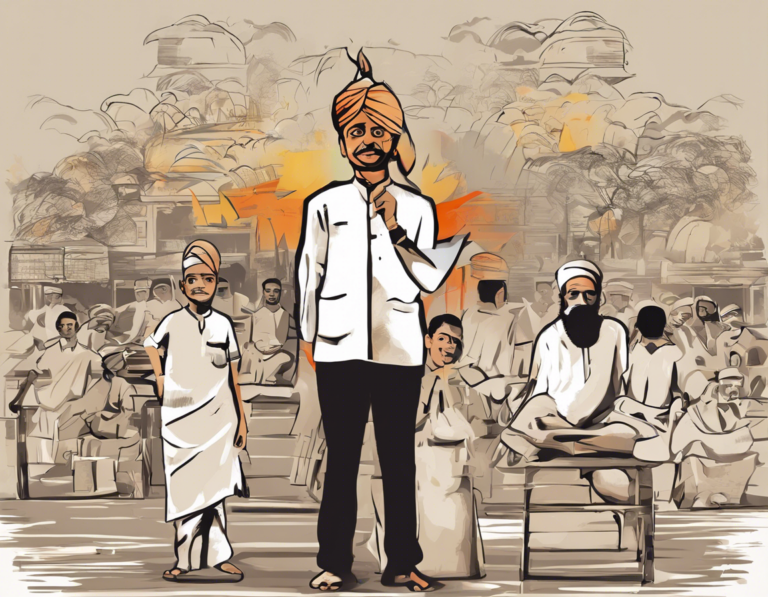
In India, the term “Shiksha Mantri” refers to the Minister of Education or the Education Minister, who is responsible for overseeing the education system of the country. The role of the Shiksha Mantri is crucial in shaping the educational policies and initiatives that impact millions of students and educators across the nation. In this comprehensive article, we will delve into the duties and responsibilities of the Bharat Ke Shiksha Mantri and explore the various aspects of this important position in the Indian government.
Understanding the Role of Bharat Ke Shiksha Mantri
The Education Minister in India plays a pivotal role in formulating, implementing, and monitoring various policies and programs related to education. This includes both school education and higher education sectors, as well as technical and vocational education. The Shiksha Mantri is tasked with ensuring that every child in the country has access to quality education and that the educational institutions function effectively to promote learning and development.
Duties of Bharat Ke Shiksha Mantri
1. Formulating Education Policies
One of the primary responsibilities of the Education Minister is to formulate education policies that aim to improve the quality of education, increase access to education, and promote innovation in the field of education. This involves collaborating with various stakeholders, including educators, policymakers, and experts in the field.
2. Allocating Budget for Education
The Shiksha Mantri is responsible for allocating budgetary resources for the education sector. This includes determining the budget for different levels of education, such as primary, secondary, and higher education, and ensuring that the funds are utilized effectively to enhance the quality of education.
3. Promoting Educational Research and Innovation
Fostering research and innovation in education is another key duty of the Education Minister. This involves supporting initiatives that promote research in education, implementing innovative teaching methods, and leveraging technology to enhance the learning outcomes of students.
4. Ensuring Quality of Education
The Shiksha Mantri is entrusted with the task of ensuring the quality of education imparted in schools and colleges across the country. This includes monitoring the performance of educational institutions, introducing quality assurance mechanisms, and taking appropriate measures to address any shortcomings in the education system.
5. Enhancing Teacher Training and Professional Development
Improving the quality of teaching is critical to enhancing the overall quality of education. The Education Minister is responsible for designing programs for teacher training and professional development to equip educators with the necessary skills and knowledge to deliver quality education to students.
6. Promoting Inclusive Education
Ensuring inclusive education for all children, including those from marginalized communities and with special needs, is a key priority for the Shiksha Mantri. This involves implementing policies that promote equal access to education and creating a conducive learning environment for all students.
7. Engaging with Stakeholders
Collaborating with various stakeholders, such as state governments, educational institutions, non-governmental organizations, and international partners, is essential for the effective implementation of education policies. The Education Minister plays a crucial role in building partnerships and fostering dialogue to advance the goals of the education sector.
Challenges Faced by Bharat Ke Shiksha Mantri
While the role of the Education Minister is significant in shaping the education landscape of the country, it comes with its own set of challenges. Some of the common challenges faced by Bharat Ke Shiksha Mantri include:
- Resource Constraints: Limited budgetary allocations for education can hinder the implementation of key initiatives and programs.
- Infrastructure Deficiencies: Inadequate infrastructure in schools and colleges can impede the delivery of quality education.
- Quality Assurance: Ensuring consistent quality across all educational institutions remains a challenge.
- Teacher Shortage: Shortage of qualified teachers in remote areas can impact the quality of education.
- Curriculum Reforms: Implementing curriculum reforms to meet the evolving needs of the 21st-century learners can be complex.
Frequently Asked Questions (FAQs)
1. What qualifications are required to become the Education Minister in India?
To become the Education Minister in India, one must be a Member of Parliament and hold a graduate degree. However, having a background in education or related fields is beneficial.
2. How does the Education Minister collaborate with state governments on education policies?
The Education Minister works closely with state governments through forums like the Central Advisory Board of Education (CABE) to discuss and formulate policies that impact education at the national and state levels.
3. What role does the Education Minister play in international collaborations in education?
The Education Minister represents India in international forums and collaborations related to education, fostering partnerships with other countries to exchange knowledge and best practices in education.
4. How does the Education Minister address issues of education disparity in India?
The Education Minister formulates policies and programs targeting marginalized communities and regions to bridge the education gap and ensure inclusive education for all.
5. What initiatives has the Education Minister undertaken to promote skill development in India?
The Education Minister promotes skill development by introducing vocational training programs, collaborating with industries for skill-based education, and emphasizing the importance of practical skills alongside academic learning.
Conclusion
The role of Bharat Ke Shiksha Mantri is pivotal in shaping the education system of India and ensuring that every child in the country receives quality education. By formulating effective policies, allocating resources efficiently, promoting innovation, and fostering collaborations, the Education Minister plays a crucial role in improving the overall quality of education in the country. Despite facing challenges, the Shiksha Mantri continues to work towards building a robust and inclusive education system that prepares students for the challenges of the future.